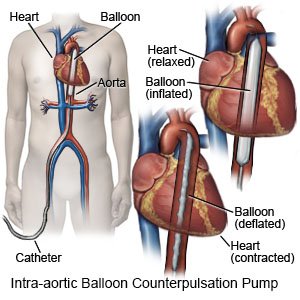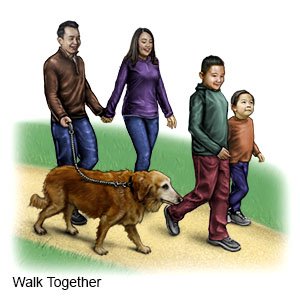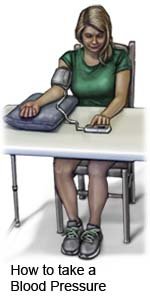Intra-Aortic Counterpulsation Pump
Medically reviewed by Drugs.com. Last updated on Apr 6, 2025.
An intra-aortic balloon counterpulsation pump (IABP) is a device used for a short time to help your heart work normally. You may need an IABP if you have severe heart failure or other heart problems. Healthcare providers will watch your condition and tell you when the IABP should be removed.
 |
DISCHARGE INSTRUCTIONS:
Call your local emergency number (911 in the US) if:
- You have any of the following signs of a heart attack:
- Squeezing, pressure, or pain in your chest
- You may also have any of the following:
- Discomfort or pain in your back, neck, jaw, stomach, or arm
- Shortness of breath
- Nausea or vomiting
- Lightheadedness or a sudden cold sweat
Seek care immediately if:
- Your foot or leg is cold, pale, has no feeling, or is painful.
- The catheter site is bleeding, or it has pus or a bad smell coming from it.
- Your catheter has started to come out, or has fallen all of the way out.
Drugs used to treat this and similar conditions
Hydrochlorothiazide
HCTZ (hydrochlorothiazide) used to treat high blood pressure (hypertension) and edema. Includes ...
Metoprolol
Metoprolol is used to treat angina (chest pain) and hypertension (high blood pressure). Learn about ...
Ozempic
Learn about Ozempic (semaglutide) for type 2 diabetes treatment, weight management, cardiovascular ...
Nucala
Nucala is used to treat severe eosinophilic asthma, chronic rhinosinusitis with nasal polyps ...
Prednisone
Prednisone is used to treat allergic disorders, ulcerative colitis, psoriasis and arthritis. Learn ...
Lasix
Lasix is a loop diuretic used to treat fluid retention from heart, liver, or kidney conditions, and ...
Bumetanide
Bumetanide systemic is used for ascites, autism, edema, pulmonary edema
Spironolactone
Spironolactone is a potassium-sparing diuretic that is primarily used to treat heart failure, high ...
Carvedilol
Carvedilol (Coreg) is used to treat heart failure and hypertension (high blood pressure). Includes ...
Call your doctor or cardiologist if:
- You have shaking chills or a fever.
- You have burning pain in the catheter site.
- Blood soaks through your bandage.
- You have questions or concerns about your condition or care.
Medicines:
- Prescription pain medicine may be given. Ask your healthcare provider how to take this medicine safely. Some prescription pain medicines contain acetaminophen. Do not take other medicines that contain acetaminophen without talking to your healthcare provider. Too much acetaminophen may cause liver damage. Prescription pain medicine may cause constipation. Ask your healthcare provider how to prevent or treat constipation.
- Take your medicine as directed. Contact your healthcare provider if you think your medicine is not helping or if you have side effects. Tell your provider if you are allergic to any medicine. Keep a list of the medicines, vitamins, and herbs you take. Include the amounts, and when and why you take them. Bring the list or the pill bottles to follow-up visits. Carry your medicine list with you in case of an emergency.
Heart-healthy lifestyle tips:
Your healthcare provider may give you specific instructions. The following are general tips for a healthy heart:
- Do not smoke. Nicotine and other chemicals in cigarettes and cigars can cause heart and lung damage. Ask your provider for information if you currently smoke and need help to quit. E-cigarettes or smokeless tobacco still contain nicotine. Talk to your provider before you use these products.
- Eat heart-healthy foods. Heart-healthy foods are low in total fat, unhealthy fats, and sodium (salt). Your provider may recommend the DASH (Dietary Approaches to Stop Hypertension) Eating Plan to help lower high blood pressure and LDL (bad) cholesterol. The plan is low in sodium, sugar, unhealthy fats, and total fat. It is high in potassium, calcium, magnesium, and fiber. Ask for more information about this plan.

- Be physically active, as directed. Ask your provider about the best exercise plan for you. Exercise makes your heart stronger, lowers blood pressure, and helps prevent a heart attack. Try to get at least 30 to 60 minutes of physical activity for 5 to 7 days a week.

- Maintain a healthy weight. Extra weight puts stress on your heart and makes it work harder. Ask your provider what a healthy weight is for you. Your provider can help you create a safe weight-loss plan, if needed.
- Check your blood pressure (BP) if you have high blood pressure. Sit and rest for 5 minutes. Extend your arm and support it on a flat surface. Your arm should be at the same level as your heart. Follow the directions that came with your monitor. If possible, take at least 2 readings each time. Take your blood pressure at least 2 times each day at the same times, such as mornings and evenings. Keep a record of your readings and bring it to your follow-up visits. Ask your provider what your blood pressure should be.

- Ask about vaccines you may need. Some infections can be dangerous for a person who has a heart condition. All adults should get the influenza (flu) vaccine. Get a flu vaccine as soon as recommended each year, usually in September or October. The pneumococcal vaccine is given to adults aged 65 years or older. The vaccine is given every 5 years to prevent pneumococcal disease, such as pneumonia. Get all recommended COVID-19 doses and boosters. Your provider can tell you if you also need other vaccines, and when to get them.
Follow up with your doctor or cardiologist as directed:
Your healthcare provider will need to check your IABP site. Write down your questions so you remember to ask them during your visits.
© Copyright Merative 2025 Information is for End User's use only and may not be sold, redistributed or otherwise used for commercial purposes.
The above information is an educational aid only. It is not intended as medical advice for individual conditions or treatments. Talk to your doctor, nurse or pharmacist before following any medical regimen to see if it is safe and effective for you.
Further information
Always consult your healthcare provider to ensure the information displayed on this page applies to your personal circumstances.
